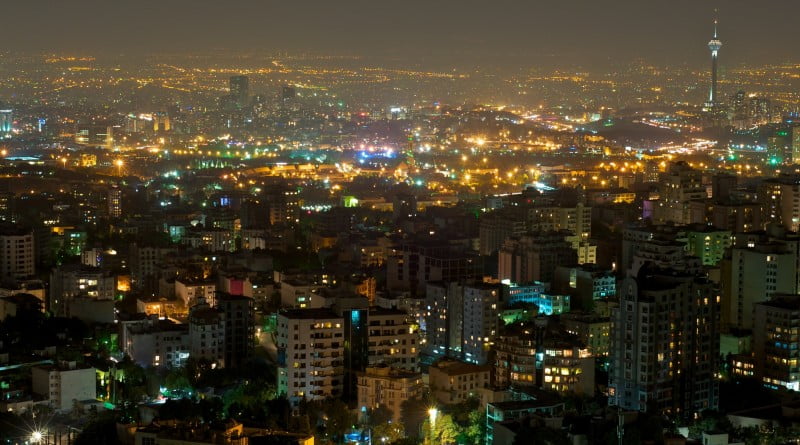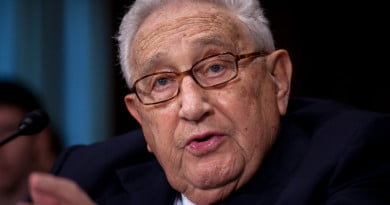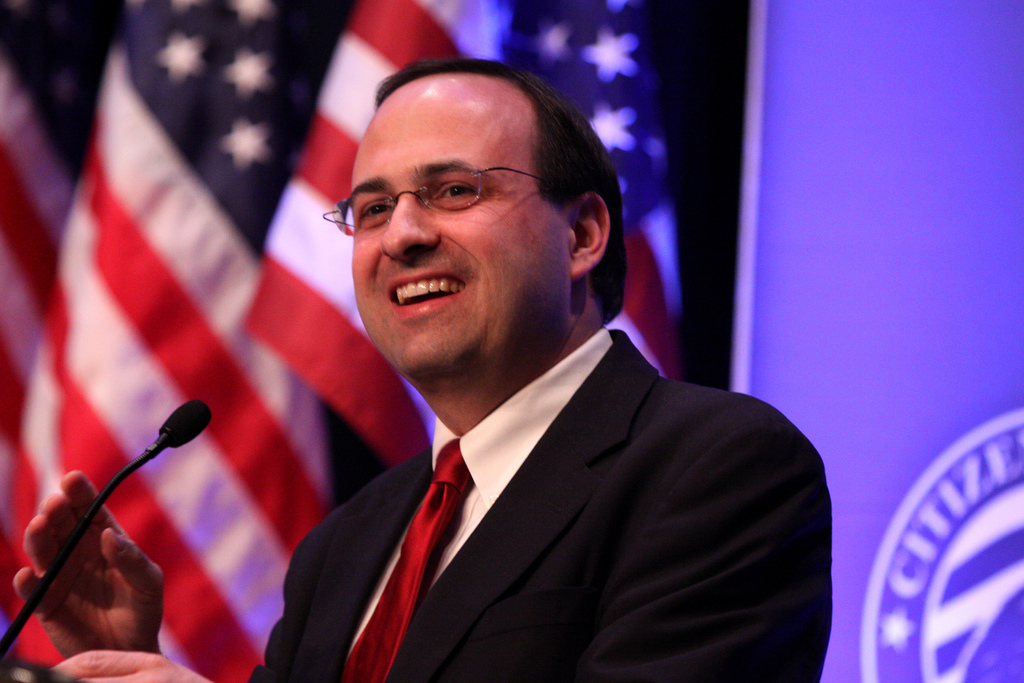The Case For Radical, Unregulated Free Trade
The Economic Case
When we hear the phrase “free trade” many people instinctively think of the “free trade agreements” that governments sign with one another. Thus, we have slowly come to forget what actual free trade is, and instead, we ironically associate protectionism and cronyism with free trade. Of course, I’m talking about things like NAFTA, TPP, and many others. In reality, these agreements have nothing to do with free trade. They increase the web of confusing rules and regulations that people have to deal with to do business, and worst of all, they don’t favor general trade and business anyway. They favor certain industries, certain corporations, and certain connected interests who lobbied enough to get some special provisions for themselves.
One of the tough things to see about these agreements is, if they have any positive benefits at all (where trade is actually freed up), it is often because the particular agreement is simply cutting through and creating exceptions to some previous tariffs, regulations, quotas, taxes, etc. In other words, the web of restrictions that governments have created for their private citizens to do business with private citizens of other nations is so great, that they are constantly needing to create new rules and regulations to deal with the old rules and regulations. It is an endless cycle, just as with any government law making. Create a law with some intended goal, fail to see all the unforeseen complications that law will cause, then they must create several new laws to deal with problems caused by the first law, and so on.
Often, these agreements don’t have an overall positive effect anyway, though. The bureaucrats and cronies use the phrase “free trade”, but these agreements are really quite the opposite. As the recent TPP has shown us, it was written behind closed doors. It does not free up the business environment, but only ends up favoring certain interests at the expense of others. Agreements like this further muddy the regulatory waters, give more power to governments and the largest crony corporations, all at the expense of small business, or in general, what remains of the free market.
Then we have to ask, why are free trade agreements a thing in the first place? Why did the practice ever start, that two governments would need to sign a deal together, allowing their citizens to trade with a reduced level of meddling, thus creating special exceptions for rules, regulations, tariffs, and other barriers to entry that those same governments had previously placed on their subjects for doing business with each other? The whole thing is a mess! So we have to look at this initial cronyism. It wasn’t right in the first place for a government, through the influence of lobbyists, and from congressmen trying to buy votes for themselves, to have ever said “if you buy/sell this particular product with another individual in this other geographic area, we will impose a tax (or subsidy) on the transaction.” So, in the first place, governments have no business creating rules for private individuals on who they can buy and sell from. This is protectionism, i.e. “Let’s create artificial rules that benefit some particular industry in some particular place.” This mentality ignores basics economics. It’s cronyism on a global scale. It makes it more difficult for natural economic calculation and price signals to function. It ignores specialization and the increased value businesses and consumers could get from buying particular products from particular places.
An obvious example of this is how the government should have never created policies to “protect” the domestic sugar industry. The government made producing sugar in the US artificially more profitable than it should have been. Then, since they’re also propping up and favoring the domestic corn industry, corn syrup slowly replaces sugar in our “food” products, because it is a cheaper alternative to domestic sugar. Thus, we get expensive sugar, cheap corn, unhealthy food, and all the while we should have just been buying cheap sugar from places like Cuba.
In the absence of all this government meddling, we wouldn’t have to call it “free trade”. It would just be trade. (Sort of like before all the chemicals, additives, pesticides, and preservatives got added into food, there was no such thing as “organic”. It was just food.) No business or individual should get special treatment or extra burden for buying or selling with individuals from any other part of the world. Markets could function. Specialization would flourish (things being produced and bought from where it is most economical to produce them). Prices would come down, and ALL people of the world would benefit from a functioning market. Inequality would actually level out. If no one is being favored or unfavored, we all have an opportunity to buy and sell with the rest of the world. That includes the poorest of places, where in an atmosphere of complete open trade, they could produce what is efficient for them to produce, and sell it to the entire world. In other words, allow comparative advantage to function. In the past, protectionist policies might have kept them from becoming successful in this way. If a village somewhere in Asia can produce and sell widgets for $5, but the US government places a tariff of $6 on Asian widgets, then identical widgets in Ohio or somewhere, selling for twice as much at $10, automatically become the cheapest option for American buyers. So the Asian village is thus kept out of the American marketplace.
From Wikipedia – “Economists have suggested that those who support protectionism ostensibly to further the interests of workers in least developed countries are in fact being disingenuous, seeking only to protect jobs in developed countries.”
Another unfortunate consequence of all this manipulation is that people are actually scared of real free trade. We’ve been trained to think that if governments weren’t telling everyone what to do in the economy, then big corporations would be able to take advantage of people, overprice their goods, create monopolies, and “exploit” their workers. What if I told you it is the exact opposite. These problems are already happening, and they’re happening because we have no free market or free trade. To the extent that we see various problems in different parts of the economy, it is caused by, and happens in proportion to, the amount of government meddling in those different sectors. For example, government and banking have really become one single entity over the last 100 years, and that is where we see the most manipulation, and lack of a functioning free market. (Yet, repeating what they’re told on TV, people think an “unregulated” out of control free market caused the 2008 crisis.) Go all the way down the scale to something like technology products, which are less regulated, or to something like flea markets and farmers markets, that have little to no government interference – then you see relatively fewer of these problems that people associate with “free markets.” So, the global marketplace is no different. When we see corporations (just a reminder, a corporation is a government created and protected entity, that would not have all of its benefits and protections in a free market) gaining disproportionate market share, charging more than market prices for a product, and paying workers below market wages, these are usually good indicators that cronyism is at work. Look beyond the surface, and find the “free trade agreement” that is benefiting this corporation. Look for the favorable laws that benefit certain companies at the expense of similar companies in other countries. Look for the artificial monopoly status it has been given through protectionism, government contracts, and IP enforcement.
So, in conclusion there, “Free Trade Agreements” are not about free trade at all. They are about special interests getting together with government, and creating a favorable and artificial business environment for themselves. Plus, there should be no such thing as free trade agreements, or protectionist policies in the first place. Every person on the planet should be free to trade with every other person on the planet, regardless of what they’re selling, or where they live.
The Case Against War
So from the economic point of view, neither protectionism or “free-trade” agreements make any sense. Let’s then turn our attention to war, and how free trade or lack-there-of, has an impact on war and peace. In the 1800s, Frederic Bastiat was known to have said, “If goods don’t cross borders, soldiers will.” (I’ve recently read that the quote can’t actually be verified to have been said by him, but nonetheless, he did express that sort of sentiment for sure.) The idea he and others have expressed since, is that freely trading goods and ideas with people in other countries is a huge deterrent to violent conflict and by having strong economic relations between individuals, governments will be disincentivized to war with each other.
To elaborate on this – the passages below are from a FEE article called Want Peace? Promote Free Trade. Of course, they’re talking about actual free trade, the absence of interference, cronyism, protectionism, etc i.e. just two businesses buying and selling from one another. Read the full article for more and see the further reading section at the end for more quotes and links. My emphasis will be added in bold and my comments in red.
“In socioeconomic academic circles, this is called the Richardson process of reciprocal and increasing hostilities; the United States harms Japan, which retaliates, causing the United States to retaliate again. History shows that the Richardson process can easily be applied to protectionism. For instance, in the 1930s, industrialized nations raised tariffs and trade barriers; countries eschewed multilateralism and turned inward. These decisions led to rising hostilities, which helped set World War II in motion.
These factors help explain why free trade leads to peace, and protectionism leads to more conflict.”
“One final note: McDonald’s analysis shows that taking a country from the top 10 percent for protectionism to the bottom 10 percent will reduce the probability of future conflict by 70 percent. He performed the same analysis for the democracy of a country and showed that taking a country from the top 10 percent (very democratic) to the bottom 10 percent (not democratic) would only reduce conflict by 30 percent.”
This last point helps remind us that economic society precedes and is superior to political society. Human action and the economic order that follows lays the foundation for all of society. When left alone, free individuals doing business with one another have a more powerful effect on promoting and maintaining peace than if you were to improve the government of a particular nation.
“Democracy is a well-documented deterrent: The more democratic a country becomes, the less likely it is to resort to international conflict. But reducing protectionism, according to McDonald, is more than twice as effective at reducing conflict than becoming more democratic.
Here in the United States, we talk a lot about spreading democracy. We invaded Iraq partly to “spread democracy.” A New York Times op-ed by Professor Dov Ronen of Harvard University claimed that “the United States has been waging an ideological campaign to spread democracy around the world” since 1989. One of the justifications for our international crusade is to make the world a safer place.”
Absolutely. Think about some country where the western nations manipulated the government, overthrew the leaders, installed a puppet government, occupied the land with military bases, and so on; In other words, the classic western-backed regime change, and attempt to “spread democracy.” How has that worked out? Not so well. Trying to coercively “improve” governments, we’ve only gotten more war, and even less trade. Compare that with places where the governments haven’t changed dramatically, but markets have opened up to some extent. We have seen relative peace, and increases in economic opportunity between countries. (China, Russia, Cuba, and recently Iran) Though, I say that, while also realizing that with less reason than ever to go to war, the western governments and the media are always trying their best to create conflict out of thin air with multiple governments, and these days, especially Russia.
“Perhaps we should spend a little more time spreading free trade instead. That might really lead to a more peaceful world.”
Further Reading:
- The Magic of Free Trade
- No More “Free Trade” Treaties: It’s Time for Genuine Free Trade
- “If we accept free trade, treatises of commerce have no reason to exist as a goal. There is no need to have them since what they are meant to fix does not exist anymore, each nation letting come and go freely any commodity at its borders.”
- We Need Actual Free Trade, Not the TPP
- “Nyhan is probably correct that much of the population — especially the part that’s never studied economics — is against the lowering of trade barriers. After all, much of the population is wed to ancient ideas of mercantilism which views trade with foreign countries as a zero-sum game in which anything that benefits foreigners must be harmful to “us.”
- Can Free Trade Really Prevent War?
- “War, therefore, is not only destructive but also contrary to the long-run economic well-being of all belligerents because it disrupts the existing or potential bonds of the division of labor from which the prosperity can come to replace the poverty and conflicts of mankind. “War,” Frederic Passy declared, “is no longer merely a crime; it is an absurdity. It is no longer merely immoral and cruel; it is stupid. It is no longer merely murder on a large scale; it is suicide and voluntary ruin.”
- All Hail Free Trade (and Henry George)
- “Trade is “the extinguisher of war, the eradicator of prejudice, the diffuser of knowledge (p. 48), while protection “has always found an effective ally in those national prejudices and hatreds which are in part the cause and in part the result of the wars that have made the annals of mankind a record of bloodshed and devastation—prejudices and hatreds which have everywhere been the means by which the masses have been induced to use their own power for their own enslavement.”
- More Free Trade Articles at Mises.org
- Free Trade vs. Protectionism: Six Principles
- 5 Good Reasons to Support Free Trade
- Free Trade Podcasts: The Tom Woods Show
- Free Trade: Key to Peace and Prosperity
- Peace and Free Trade: “One and the Same Cause”
- The WTO: Threat to Free Trade





